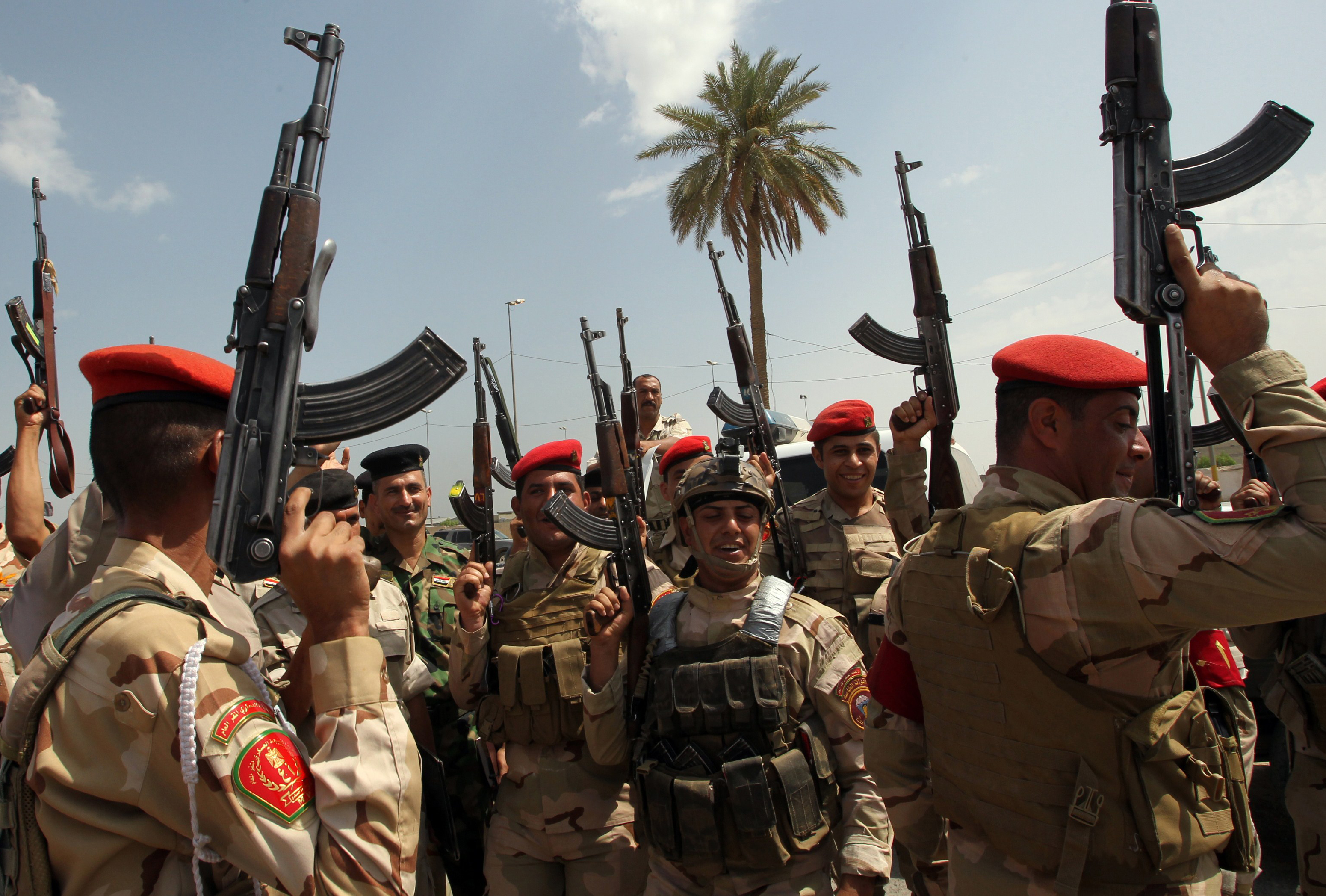Al-Baghdadi grabs global jihad brand once owned by Bin Laden
By using social media, self-proclaimed Caliph Ibrahim insures the flow of recruits from Britain and Europe

A free daily email with the biggest news stories of the day – and the best features from TheWeek.com
You are now subscribed
Your newsletter sign-up was successful
The declaration of the new Islamic State and Caliphate by the militant Sunnis of Isis is a bold grab for the leadership of the global jihadist movement and brand. Abu Bakr al-Baghdadi, the new self-proclaimed Caliph Ibrahim, is seeking to take over where Osama bin Laden left off.
According to the proclamation via the web and social media, Isis itself is changing its name to simply the Islamic State. The new state runs from Aleppo in the the northwest, eastward to Dyala province in Iraq.
The names Syria and Iraq, marked by lines on the map laid down by Sir Mark Sykes of Britain and Monsieur Francois Georges-Picot in their infamous secret deal of 1916, are now erased, in al-Baghdadi's world view.
The Week
Escape your echo chamber. Get the facts behind the news, plus analysis from multiple perspectives.

Sign up for The Week's Free Newsletters
From our morning news briefing to a weekly Good News Newsletter, get the best of The Week delivered directly to your inbox.
From our morning news briefing to a weekly Good News Newsletter, get the best of The Week delivered directly to your inbox.
By sending such a dramatic message via social media - a means at which his movement excels - al-Baghdadi is ensuring the continuing flow of recruits to his cohorts of fighters from Britain and Europe. These recruits now run to 1,000-plus – at least 500 from the UK alone, according to conservative estimates.
In some Sunni communities in Britain, the call of the new Caliph has revealed a dramatic divide of the generations. In the case of the [2]two recruits from Cardiff identified last week, their parents did not know what their sons were up to. The Cardiff Bay area has sent seven young men to sacrifice themselves in the cause of jihad in the past four five years.
The charismatic al-Baghdadi is aiming at dissidents and backsliders within his own camp in the insurgency against the Assad regime in Syria and the Shia-dominated government in Baghdad. Isis grew originally from a split with the al-Qaeda affiliates in both countries, and has been engaged in some heavy combat with the al-Nusra front, al-Qaeda’s main associate in Syria.
On the global stage, the Isis leadership cabal is deliberately displacing Ayman al-Zawahiri, the late Osama bin Laden’s counselor and heir, who is seen as aged and out of date by young militants. He is currently believed to be in northern Pakistan.
A free daily email with the biggest news stories of the day – and the best features from TheWeek.com
Like Zawahiri, al-Baghdadi believes all Shias to be infidels and apostates. His declaration of the new Islamic State is a direct challenge to Iraq’s prime minister Nouri al-Maliki, whose unpopularity and pro-Shia sectarian stance has been a rallying point for a broad swathe of Sunni opposition. Maliki is also seen as deeply corrupt, ruling by fear and favour to his own faction in the Shia community.
This is seen as the key to the broad-based support for the Isis offensive which began with the takeover of Mosul only a few weeks ago. Isis has been joined by former members of Saddam’s regime and forces, including, it is believed, by the one senior Baathist general at large, Izaat ad-Douri.
Al-Maliki is to bid for a third term as prime minister when the new parliament meets in Baghdad in the next few days. Much depends on the patronage of Iran, and here the signs for him are not good. The influential Islamic Supreme Council, led by the Iran-backed al-Hakim clan, which has 30 seats, has said they want al-Maliki to step down.
The signs of a definitive partition of Iraq are becoming stronger by the day. Both Turkey and Israel have declared that it is time for the Kurds to have their own state in the north of the country, a huge turnaround – particularly by the towns.
The promise of the new Islamic State in the heart of the Middle East along the lines of the two great rivers, Tigris and Euphrates, where urban civilization began, promises even less stability – in the region and the world.
Isis will discover that conquest and occupation are different things. When the al-Qaeda affiliates of Abu Musab al-Zaqarwi tried to take over central Iraq nearly ten years ago, cities rose against them, and eventually the traditional clan leaderships threw them out.
The new caliphate will have greatest traction through the image and word in cyberspace. It adds new allure for many young militants keen to join the cause of global jihad wherever they are directed, at home and abroad.
is a writer on Western defence issues and Italian current affairs. He has worked for the Corriere della Sera in Milan, covered the Falklands invasion for BBC Radio, and worked as defence correspondent for The Daily Telegraph. His books include The Inner Sea: the Mediterranean and its People.